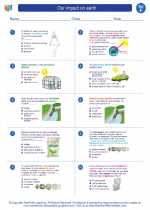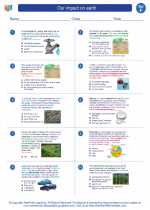Fungi: Introduction and Characteristics
Fungi are a diverse group of organisms that play vital roles in the environment. They are eukaryotic organisms, meaning their cells contain a true nucleus. Fungi can be found in various habitats, including soil, water, and even inside other organisms. They are important decomposers, breaking down organic matter and recycling nutrients in the ecosystem.
Characteristics of Fungi:
- Cellular Structure: Fungi are made up of filaments called hyphae, which together form a network known as mycelium. The cell walls of fungi contain chitin, a structural polysaccharide.
- Nutrition: Fungi are heterotrophs, meaning they obtain nutrients by absorbing organic material from their environment. They secrete enzymes to break down complex molecules into simpler forms that can be absorbed by the mycelium.
- Reproduction: Fungi can reproduce both sexually and asexually. Asexual reproduction occurs through the formation of spores, while sexual reproduction involves the fusion of specialized reproductive cells.
- Ecological Importance: Fungi play critical roles in nutrient cycling, symbiotic relationships with other organisms, and as pathogens of plants and animals.
Types of Fungi
There are various groups of fungi, each with unique characteristics and ecological roles. Some common types of fungi include:
- Ascomycetes: Also known as sac fungi, they are characterized by the presence of sac-like structures called asci, which contain spores.
- Basidiomycetes: These include the familiar mushrooms, and their spores are produced externally on club-shaped structures called basidia.
- Zygomycetes: They are characterized by the formation of resistant zygospores during sexual reproduction.
- Chytrids: These are primitive fungi with flagellated spores, and they can be found in aquatic environments.
Importance of Fungi
Fungi have significant ecological and economic importance. They are involved in processes such as decomposition, nutrient cycling, and the production of antibiotics and food products. Additionally, some fungi form mutualistic relationships with plants, aiding in nutrient uptake and disease resistance.
Study Guide
- What are the main characteristics of fungi?
- Describe the cellular structure of fungi, including the role of hyphae and mycelium.
- Explain the nutritional mode of fungi and how they obtain nutrients.
- Discuss the reproductive strategies of fungi, including asexual and sexual reproduction.
- Identify and describe at least three different types of fungi, including their distinguishing features.
- Explain the ecological importance of fungi in nutrient cycling and symbiotic relationships.
- Discuss the economic importance of fungi, including their role in food production and medicine.
By understanding the characteristics and ecological roles of fungi, we gain valuable insights into the diversity and importance of these organisms in the natural world.
[Fungi] Related Worksheets and Study Guides:
.◂Science Worksheets and Study Guides Sixth Grade. Our impact on earth

 Worksheet/Answer key
Worksheet/Answer key
 Worksheet/Answer key
Worksheet/Answer key
 Worksheet/Answer key
Worksheet/Answer key
 Vocabulary/Answer key
Vocabulary/Answer key
